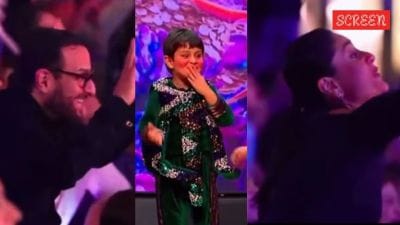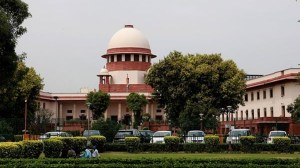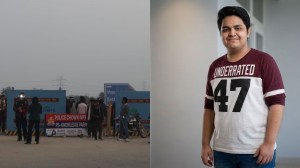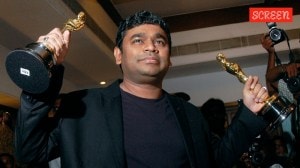Patriot Games
The soldiers are dead, long live the soldiers; the battle is won, long live the battle. This appears to have become the media mantra over...

The soldiers are dead, long live the soldiers; the battle is won, long live the battle. This appears to have become the media mantra over the last two weeks. Even as the dogs of war bark faintly on the Kargil mountains, the media reverberates, loudly, with the echo of those houndish sounds. To say nothing of the sights. It8217;s still going on: the soldiers8217; stories, the draped coffins, the stoical families, the injured in army hospitals, the strategic manoeuvres, the politicians practising their salutes; and a constant fusillade of tear-jerking, jingoistic propaganda. This war isn8217;t over yet.
If war is a sport, then these are Patriot Games. As the guns fall silent and the actual conflict recedes alongwith the backs of the intruders, the media focus hardly wavers. Just over a fortnight ago, we were going up the Tiger Hill; we are now back on the terra firma of the plains. But the chronicles of a war are being retold. And retold8230; Lest we forget.
Well nigh an impossibility. How history will look back upon the Kargil conflict is for the future to decide. At the moment, however, Kargil is on everyone8217;s lips and we8217;re singing it like the national anthem.
Throughout this crisis, the media have been scrupulously Indian. Every effort has been made to back the government and the armed forces in what has been a terrible but necessary? human tragedy. As the media never tires of repeating: more men have died in this conflict than in 1971.
As if in recognition of this fact, the media has lavished attention and loving care on the men in uniform. If the armed forces were laid to an all time low by the sacking of Admiral Bhagwat last December 8212; and the consequent media battle for and against him 8212; then Kargil is the Resurrection. The bravery of the soldiers and their families has been faithfully, diligently replayed for the entire nation. Lest we forget.
Which is precisely how it should be. The televised pictures of the young soldiers in the bunkers, the reports on the condition of the human soul and soles? up there, the courage of mothers, widows 8212; have been inspirational to a country so accustomed to thinking of itself and its people as losers.
Without a doubt, this media coverage has helped the war effort, has helped generate unity where only diversity appeared to exist. We have witnessed perfection: a perfectly conducted war, a perfect diplomacy, a perfect response by the armed forces, government, political parties, people and media.
Too perfect to be true? Ask yourselves: did the media go too far in a good cause? Has it unleashed a patriotic fervour, which now that the war is nearly over, finds no outlet, no focus? Or expresses itself in misplaced nationalism and considerable breast-beating? Should the reasons for the intrusions have been pursued with the same zeal television did our soldiers and their families? Some of us have begun to tire of the Kargil coverage. Not because we are any less patriotic but because we want more than the soft soap stories. Not because we don8217;t want to see what is happening up there, but because we want to know why it happened. Not because we aren8217;t positively awestruck by the dry-eyed families8217; courageous acceptance of their men8217;s deaths but because we are beginning to suspect that they are holding back their tears out of a misplaced sense of patriotism and the harsh glare of the TV cameras.
There is an argument which says the coverage should have been more balanced, measured. By its unquestioning attitude, by equating patriotism with uncritical support for the war effort, by humanising the sub-human conditions of the soldiers/conflict, has the media humanised war? By the barrage of promos, tributes, testimonials and advertisements, the lengthy DD docus, has this become a celebration, glorification of war, instead of its condemnation? And where do we go from here? If we accept that the media has aroused us, mobilised us for the war effort, convinced us of its necessity, what will people do if we discover somewhere down the line, that is was all so unnecessary, that it could have been avoided? All those people who did not cry, rant, rave, but rather put a brave face on their loss, will they then, feel cheated? If the honeymoon should end, when will it be over?
PS: Now that Pakistan8217;s Army Chief has admitted that Pakistani soldiers crossed the LoC on BBC, how will the Beeb identify the intruders?
- 01
- 02
- 03
- 04
- 05































